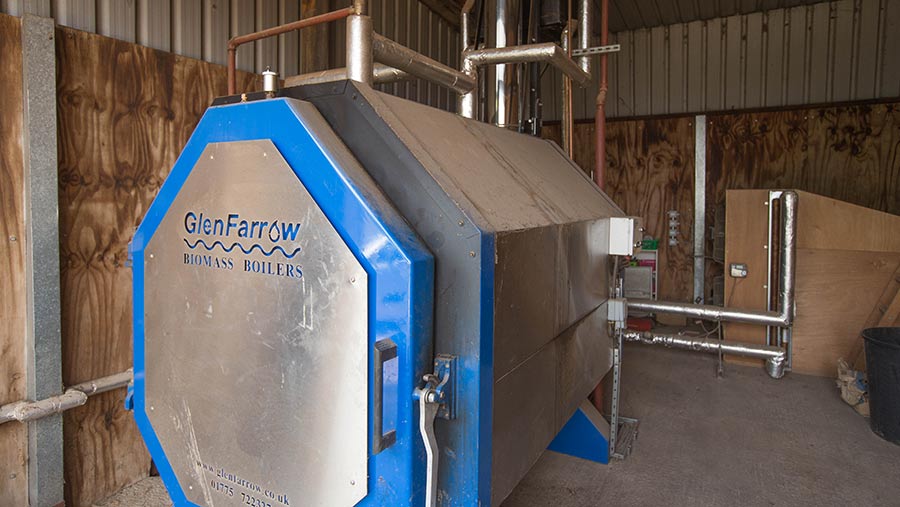Business Clinic: Advice on RHI and planning permission
 © Tim Scrivener
© Tim Scrivener Whether it’s a legal, tax, insurance, management or land issue, Farmers Weekly’s experts can help. Here, Clare Davey of Carter Jonas provides some analysis of recent changes to the Renewable Heat Incentive rules.
Q. I have recently been audited by the Ofgem Renewable Heat Incentive team, who have confirmed that I need planning permission for my RHI-accredited biomass boiler, which provides heat across the farm.
Planning permission was not a requirement on the non-domestic RHI Accreditation Portal, and now my payments have been suspended until I can provide evidence. Please advise what I should do.
A. Sadly, your situation is not uncommon. Many in the farming community have been affected and it has caused widespread concern.
As a planning specialist, it has given me and our broader energy team much to consider over recent months as we have had queries from those in a similar position.
Clients have had their Renewable Heat Incentive (RHI) payments suspended as they are unable to provide evidence of planning permission for their biomass boiler.
See also: Browse the Business Clinic back catalogue
The issue has arisen following the publication last year of updated non-domestic RHI guidance from Ofgem.
While technically planning permission has always been a requirement for RHI accreditation, Ofgem has not until recently asked to see evidence of a decision notice.
Following the new guidance, it is now standard practice for Ofgem to seek confirmation of the planning permission decision notice as part of its regular auditing process.
As a consequence, Ofgem has identified numerous sites that had previously been granted accreditation without planning permission in place.
Payments suspended
Payments are being suspended and farmers are being asked to apply for retrospective planning permission, with payments being restored only once planning permission is obtained and evidence of it provided.
It is worth noting that some installations may be exempt from these requirements under permitted development rights, but the onus will be on the farmer to provide evidence that permission wasn’t/isn’t required.
To this aim, relevant supporting documentation may have to be submitted, such as a Certificate of Lawful Development, which demonstrates full planning permission is not required.
Retrospective planning permission
Owners of schemes that fall outside the exemptions will need to apply to their local authority for retrospective planning permission.
Determination periods are traditionally eight to 12 weeks, depending on the scale of the development, but the whole process is likely to take between three and six months.
Subsequently, you will either be granted retrospective planning permission, or your application will be refused.
In the event of the worst-case scenario, you may be issued with an enforcement notice demanding that you reverse the changes that have been made.
No further payments on the scheme will be made and Ofgem could even request that those made to date are reimbursed.
Any owner of a plant who is unsure whether planning is required is advised to seek specialist advice before auditing, allowing enough time to make the necessary checks and any subsequent application before payments are suspended.
Do you have a question for the panel?
Outline your legal, tax, finance, insurance or farm management question in no more than 350 words and Farmers Weekly will put it to a member of the panel. Please give as much information as possible.
Send your enquiry to Business Clinic, Farmers Weekly, RBI, Quadrant House, The Quadrant, Sutton, Surrey SM2 5AS.
You can also email your question to fwbusinessclinic@rbi.co.uk.

